Help These Bears Suffering in Tourist Traps
Take action now to let exhibitors know that these animals don’t belong in tiny cages or pits.
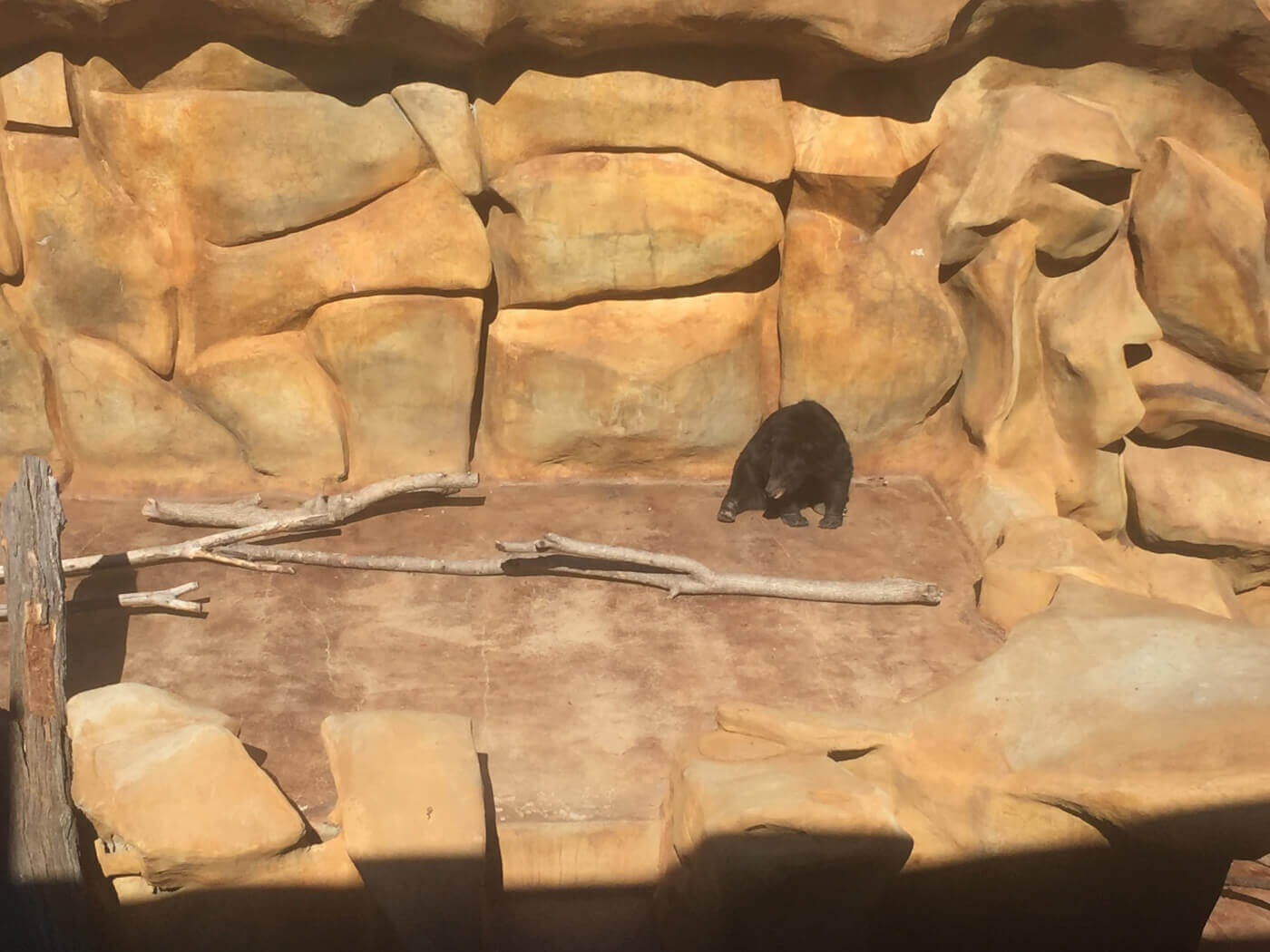
Across the country, hundreds of bears spend their lives confined to small concrete-floored enclosures or pits in roadside zoos. Some cubs are separated from their mothers as infants, so instead of being nurtured by their moms, they spend their days being forced to participate in photo ops with tourists. Their lives are typically devoid of any comfort or outlets for engaging in natural behavior. Here are six ways captive bears suffer in roadside zoos and traveling shows and what you can do to help them:
1. They’re denied the ability to exhibit their natural behaviors.
In nature, bears roam vast territories in which they can play and socialize. They like to climb, dig, forage, and travel long distances. But roadside zoos and traveling exhibitors typically deny them the opportunity to exhibit these types of behavior. For example, in traveling shows, they’re often forced to perform meaningless tricks, such as riding a scooter, walking on their hind legs, or pulling hoops over their heads.
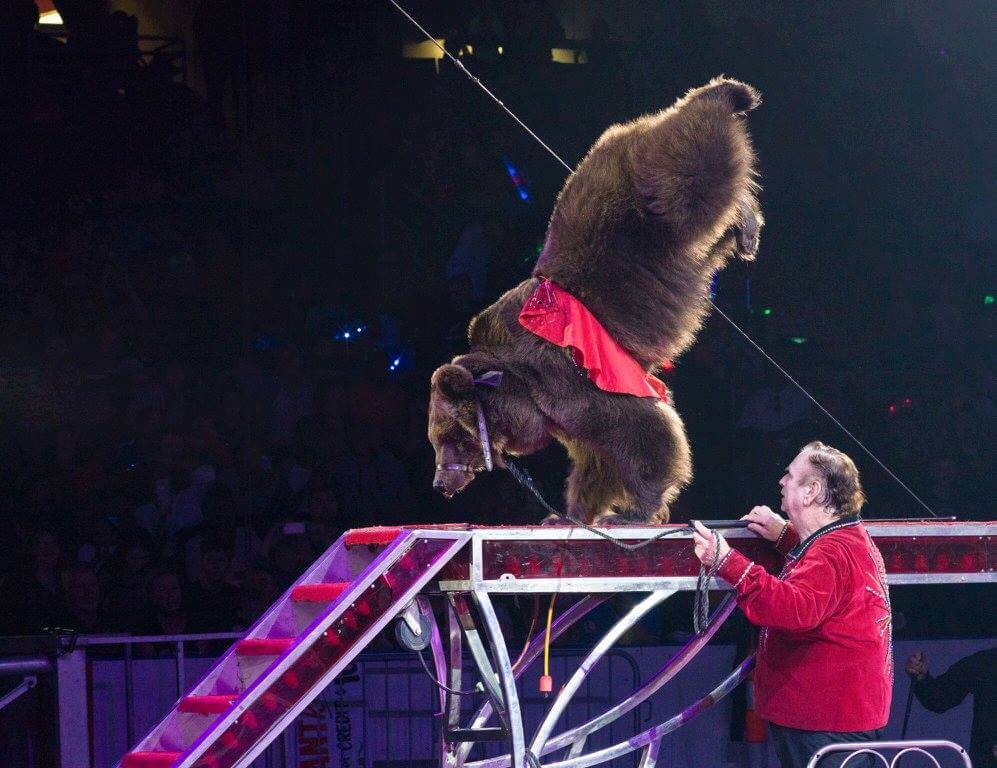
2. Their needs for environmental enrichment aren’t met.
Because bears have evolved to live in varied and complex environments in nature, they can’t cope with often small and typically barren enclosures in captivity. Three Asiatic bears at Three Bears General Store in Tennessee—Papa, Katie, and Smokey—spend their days in a cramped concrete pit and have virtually nothing to do except stare at the walls and beg tourists for food.
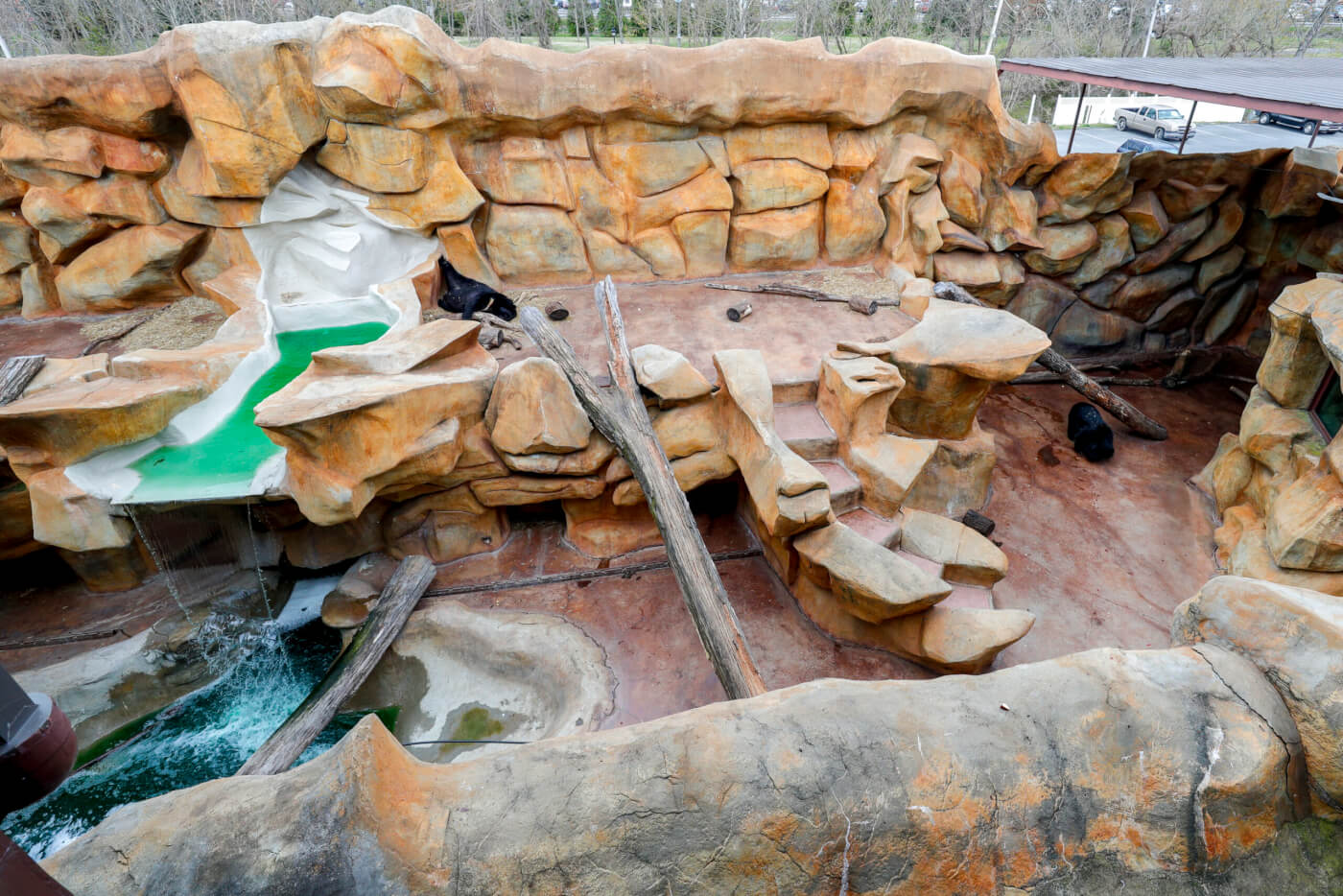
3. Some bears in roadside zoos don’t have the opportunity to hibernate.
The bears exploited and put on public display at Cherokee Bear Zoo in North Carolina and Three Bears General Store are expected to entertain tourists year-round. Depriving these animals of the opportunity to engage in their natural behavior of seasonal denning is a major disruption to their natural cycle and causes severe psychological stress.
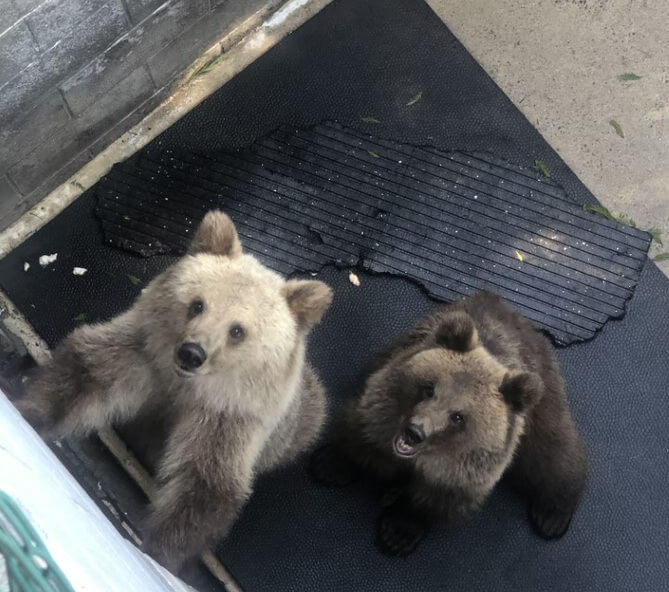
4. Bears in roadside zoos are often denied adequate veterinary care.
Many bears are deprived of proper veterinary care needed to treat illnesses that develop in captivity. Pymatuning Deer Park in Pennsylvania has a long history of animal welfare violations, including confining animals to cramped enclosures that lack adequate space and failing to provide them with appropriate veterinary care for issues like arthritis.
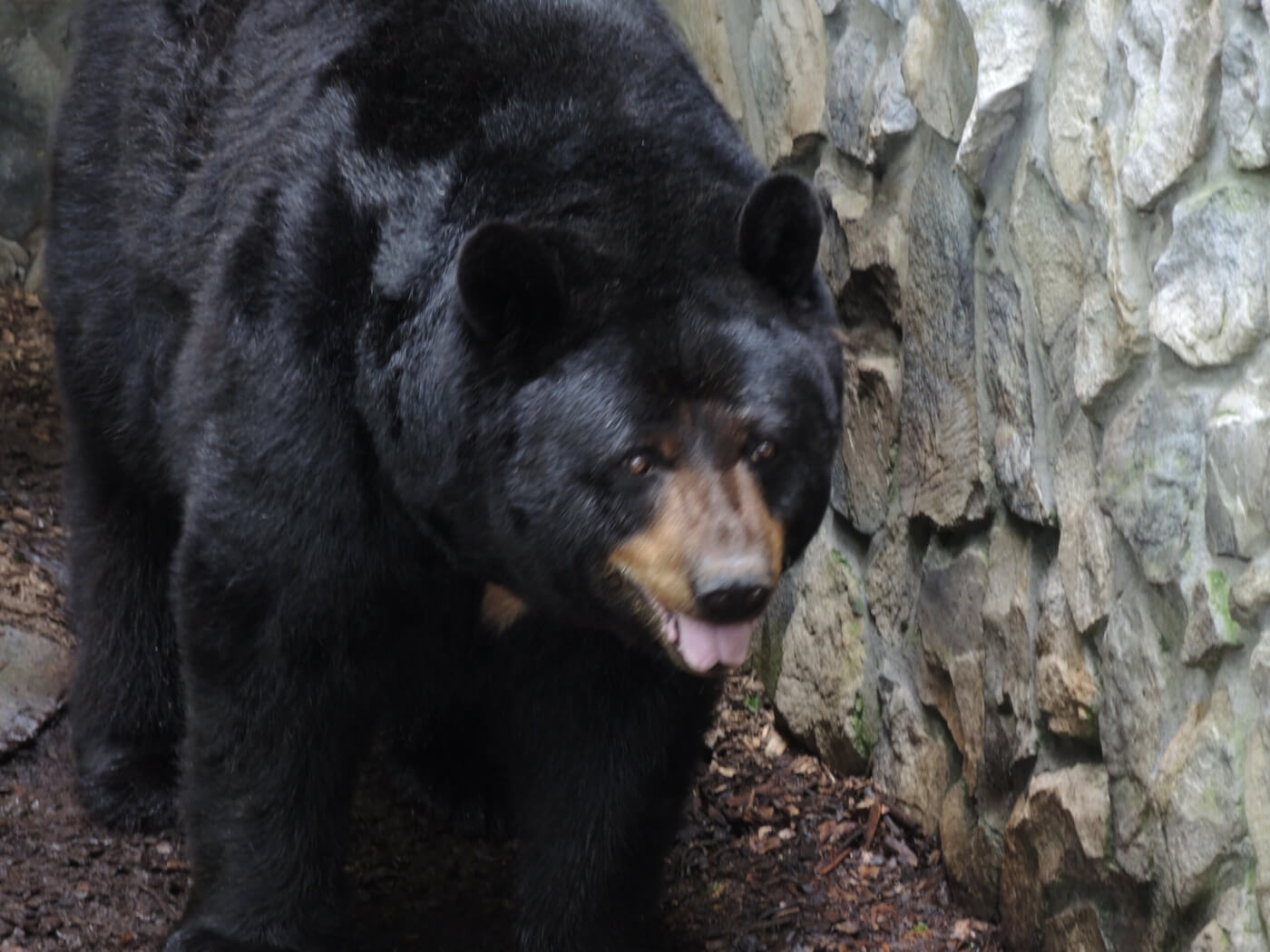
5. Cubs used for photo ops suffer from severe psychological distress.
Cubs at Oswald’s Bear Ranch in Michigan were observed being kept in concrete-floored pens and crying, pacing, and chewing on their cages. Three bear cub sisters—Ashley, Sophie, and Sassy—were used for lucrative photo ops with the public. They were seen pacing and crying out, and one repeatedly chewed on the cage—all signs of psychological distress. Two of the cubs also had thinning hair on their hindquarters, something that veterinarians say is likely a result of being confined exclusively to a wet concrete enclosure with no soft bedding.
Tragically, 2-year-old Sophie escaped from the property in 2019 during a power outage in which the bear enclosure’s electrical fencing was off, and she was shot dead by police.
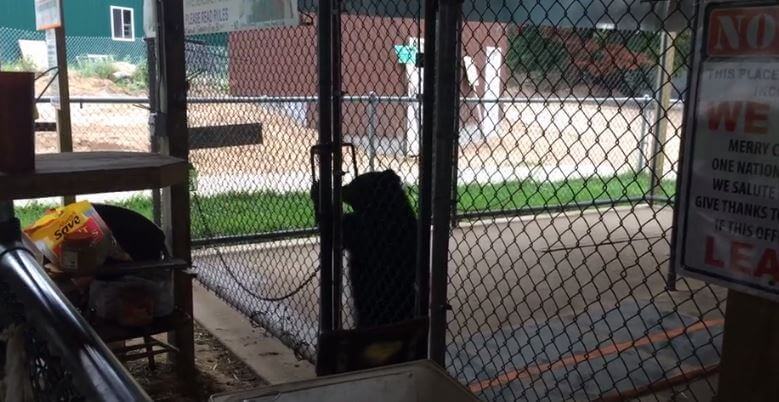
6. Bears in traveling acts are forced to endure grueling conditions so that their owners can make money.
Bearadise Ranch carts bears across the country in cramped transport trailers and forces them to perform meaningless tricks. A U.S. Department of Agriculture inspector cited the exhibitor for not providing them with enough space, writing, “The 8 bears still reside at night and during bad weather in the enclosures built into the truck used during touring.” Rosaire’s Bears has been cited for keeping bears in a rusty and dilapidated steel shipping container and feeding them mostly bread. During a Shrine circus performance by Rosaire’s Bears in 2018, one bear was seen urinating twice and then licking his own urine off the floor. According to an expert, this behavior was likely a severe distress response to being forced to perform uncomfortable acts. Bears suffer when they’re treated as nothing more than a paycheck.
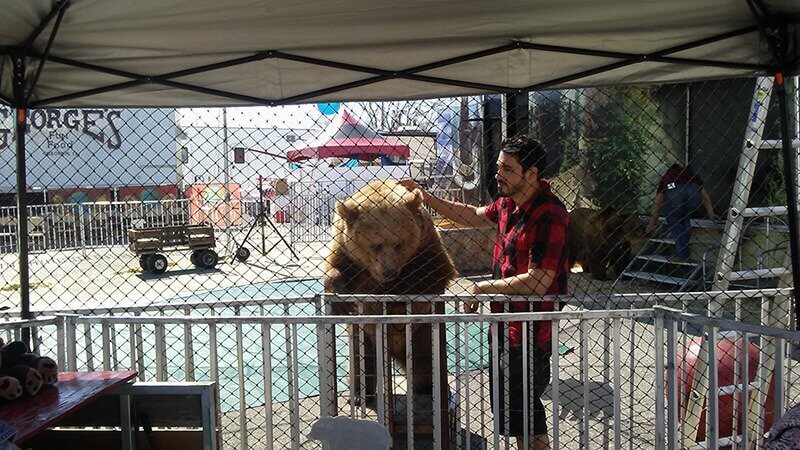
Take Action Now
Speak up for the bears living in these unnatural conditions. Urge the facilities confining them to do the right thing by improving the conditions or sending the animals to reputable sanctuaries where they’ll receive the care that they need.
There are multiple ways to help. As soon as you take action for one bear, the opportunity to help another will appear in its place. You can speak up for all of them!
After you enter your information, keep clicking “Send Message” to make your voice heard. Then share this page with your friends and family members so that they can add their voices and help these animals, too.